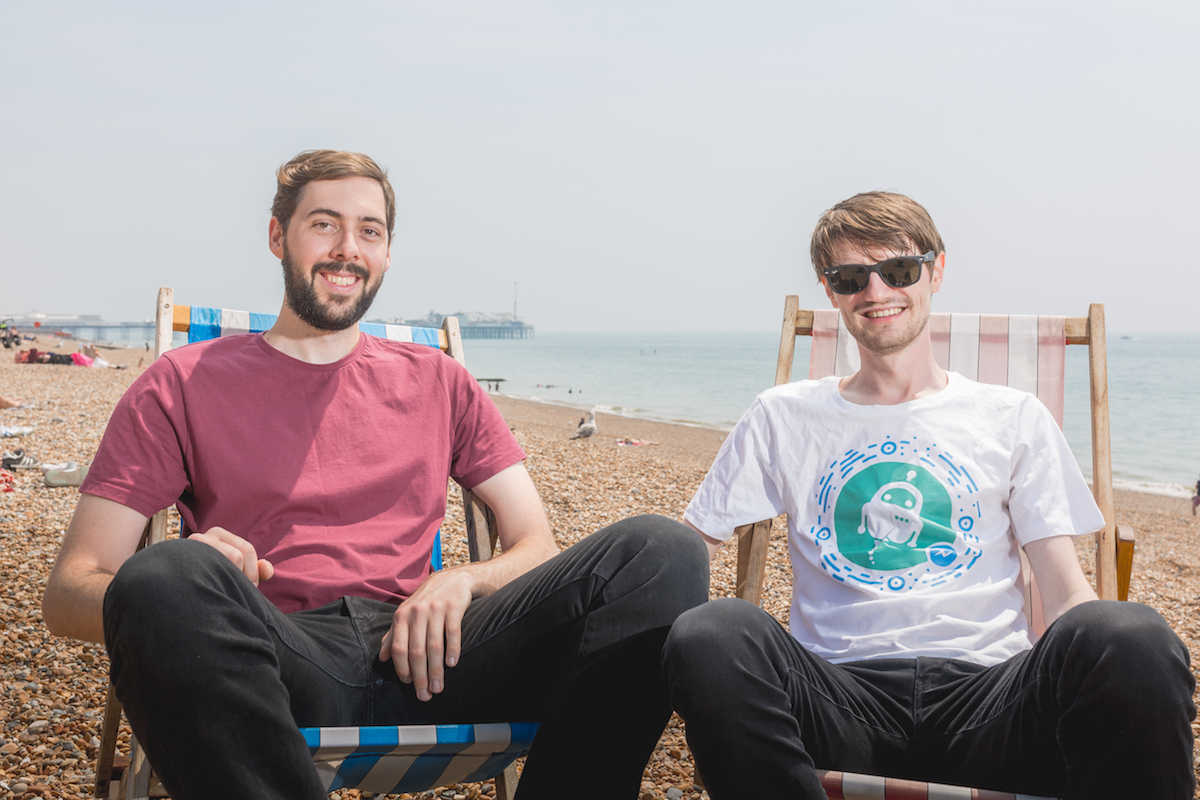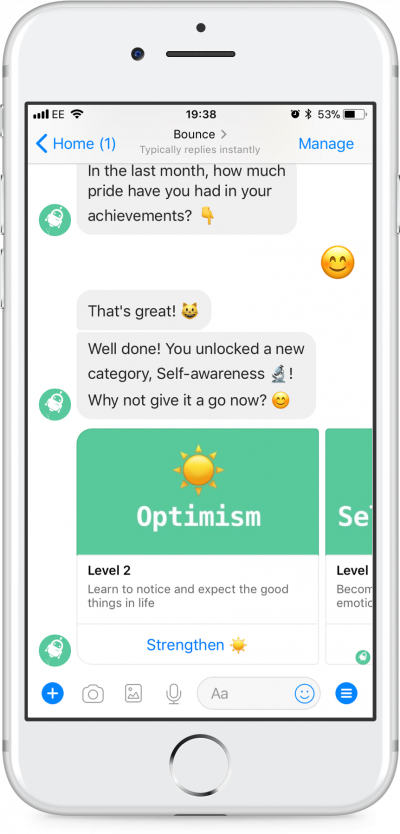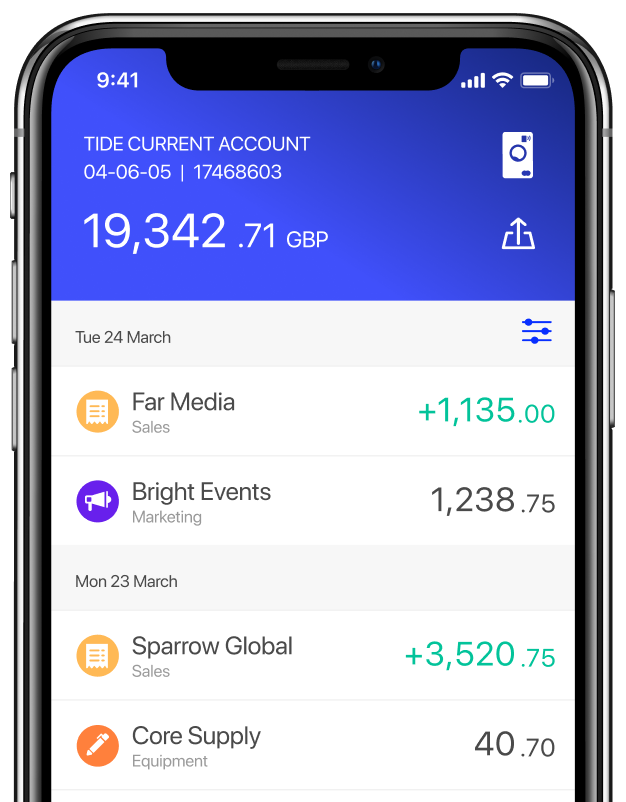
Christopher Weeks and Alastair Byrne, the startup founders looking out for your mental health

Britain’s mental health crisis is front-page news. Self-harming in teenage girls is soaring. Suicide amongst men under 45 is the number one cause of death. And loneliness amongst the elderly is so common that it’s heartbreaking to think about it.
We hear a lot about the causes, but very little about potential solutions. Mental health illnesses are hard to treat, especially when sufferers are too nervous to seek help. And when they do, it can take months to get an appointment.
The result is misery.
Introducing Bounce – the free mobile app that wants to be part of the solution.
Bounce is a preventative solution for your mental health
“Bounce is a preventative solution for your mental health,” says Chris, who co-founded the service with former colleague Alastair. “It’s a kind of personal trainer, delivered through Facebook Messenger, giving you daily exercises. Nobody gets through life without hitting a rough patch, and we want to make people more resilient. Then they can drag themselves back up by the bootstraps and keep doing the things they want in life.”
The pair worked in research and development for an energy company, but noticed the rocketing demand for an alternative approach to mental health therapy. “The main reason we started Bounce was a lot of our friends and family were suffering from mental health issues,” says Chris. “And we found a lot of existing solutions were reactive.”
So they designed Bounce – an instant access, automated therapy chatbot.
Chris explains: “People go to our website, click Get Started and within 30 seconds you’ll be doing your first exercise. Then you’re on a journey. It will remind you each day to check in, and do an exercise.”
The course starts gently. Just think of three good things that have happened in the last day and type them in. The chatbot asks questions, and offers prompts. It’s simple.

As the course develops, users are taught cognitive behavioural therapy tools, just as they would in a personal session.
“We work with clinical psychologists and universities,” says Chris. “And we have a freelance clinical psychologist who researches academic literature for us, and selects the papers we should read.”
There is a growing body of evidence to support Bounce’s mission. A study from the University of Stanford found that chatbots offer provable gains in improving mental well-being. A second scientific survey, by the University of Auckland, concluded that chatbots like Bounce really work, and could be the key to helping teenagers get the help they need. It’s hugely encouraging.
Helping people who are struggling is important to us, and it drives us forward.
It’s early days for Bounce, but the user-base is growing 30 per cent month on month. And the product is improving in leaps and bounds via user feedback.
“We built our first Minimum Viable Product in two weeks,” recalls Alastair. “We launched it with a Team Break.”
Which is?
“Ah, that’s when we send it to our friends and said ‘Just destroy it’!”. Around 15 people took part in the testing-to-destruction, and today users are still encouraged to be brutal with their comments. They notice odd stuff, like spelling mistakes. One of our users told us our gallery card would look better a different way. And they were right!”
The revenue comes from a business version, which companies offer their employees. “One of our greatest achievements is a four-week trial of Bounce for a Brighton-based company,” says Chris. “We did questionnaires before and after – and using Bounce resulted in a big reduction in stress, anxiety, depression, and increased resilience. We looked at the correlation between improvement and the number of exercises people did, and found that the more they did, the more they improved.”
The goal of being able to offer mental health services to tens of thousands of people around the UK and abroad is tantalisingly close. Chris and Alastair are so committed to making it happen they’ve felt their own twinges of anxiety.
“It’s quite funny because we run a mental health business, but it’s very stressful!” admits Chris. “It challenges your confidence and self-esteem. “Some weeks you feel great – you feel like everything’s going well and you can take on the world. Other weeks you feel like you’ve got this massive boulder on top of you and everything you’re trying to do is really hard.”
The pair have vowed to keep Bounce as agile as possible, to keep improving and to meet users’ needs.
“We both come from a tech background, and we hate any sort of admin or bureaucracy,” says Alastair. “When we started Bounce we looked at business bank accounts and thought, ‘Ah there must be a start-up equivalent.’ And that’s when we found Tide. Signing up was really painless and quick, and we were able to integrate with Xero, our accounting software. It’s been great.”
The goal is to be a pioneering app for mental health, and do for well-being what RunKeeper did for joggers.
“With most people, you only see what’s on the outside, but on the inside they might really be struggling” says Chris. “Helping these people who are struggling is important to us, and it drives us forward.”
Check out Bounce’s website here: bouncebot.io



